Until recently, human CO2 emissions were responsible for ~10% of the variance in year-to-year CO2 growth rate. But a new analysis says human CO2 emissions have been slightly declining for the last decade. So 0% responsible, apparently.
CO2 emissions derived from human activity (fossil fuel combustion and land use changes) only account for about +0.1 to 0.3 PgC/yr of the annual change in CO2 concentration. This is about “10% of the variance (σ²) of the CO2 growth rate” (Wang et al., 2013).
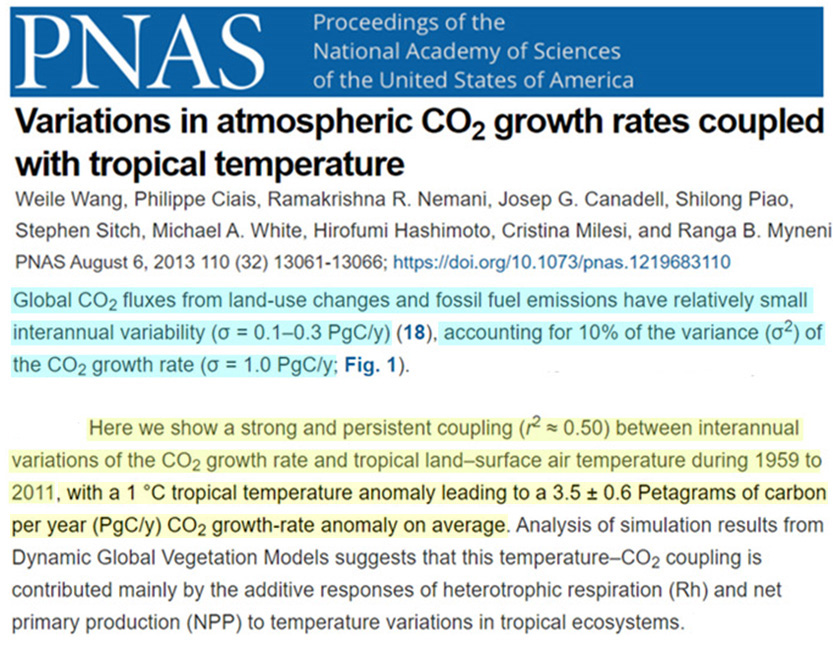
Image Source: Wang et al., 2013
Jones and Cox (2005) have pointed out that the changes associated with annual fossil fuel emissions are unlikely to explain CO2 growth rate anomalies.
“…it is unlikely that these anomalies can be explained by an abrupt increase in anthropogenic emissions, as the anomalies are much larger than annual increases in fossil fuel emissions.”
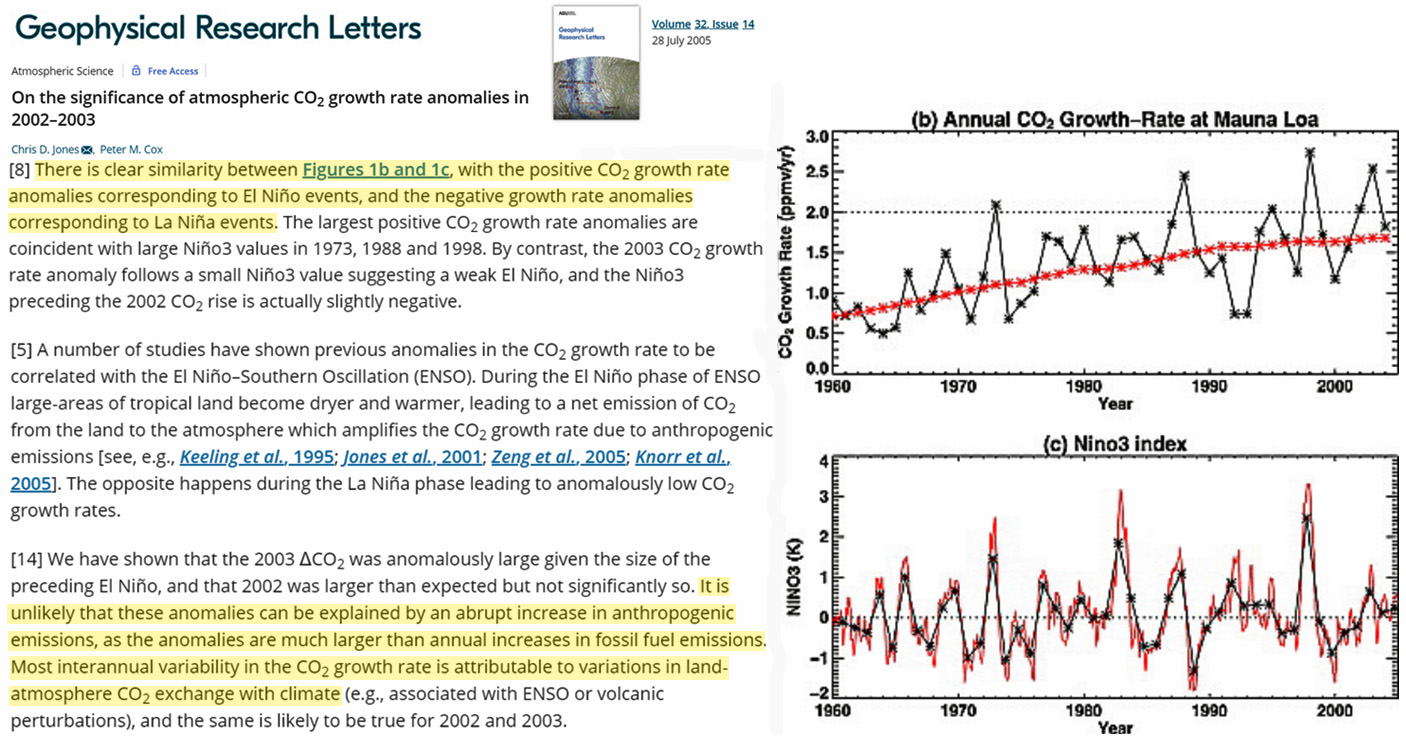
Image Source: Jones and Cox, 2005
Dr. Jari Ahlbeck (2009) also concluded that the correlation between fossil fuel emissions and the increase in CO2 growth rates is “clearly statistically insignificant.” He therefore excluded this factor from consideration in his analysis of the mechanisms of CO2 variability.
A chart included in the body of the paper reveals other 5-year periods where there was either a decline in the annual CO2 emissions trend (5.33, 5.17, 5.13, 5.11, 5.29 GtC/yr for 1980-1984) or a flattened trend (6.40, 6.53, 6.63, 6.59, 6.57 GtC/yr for 1995-1999).
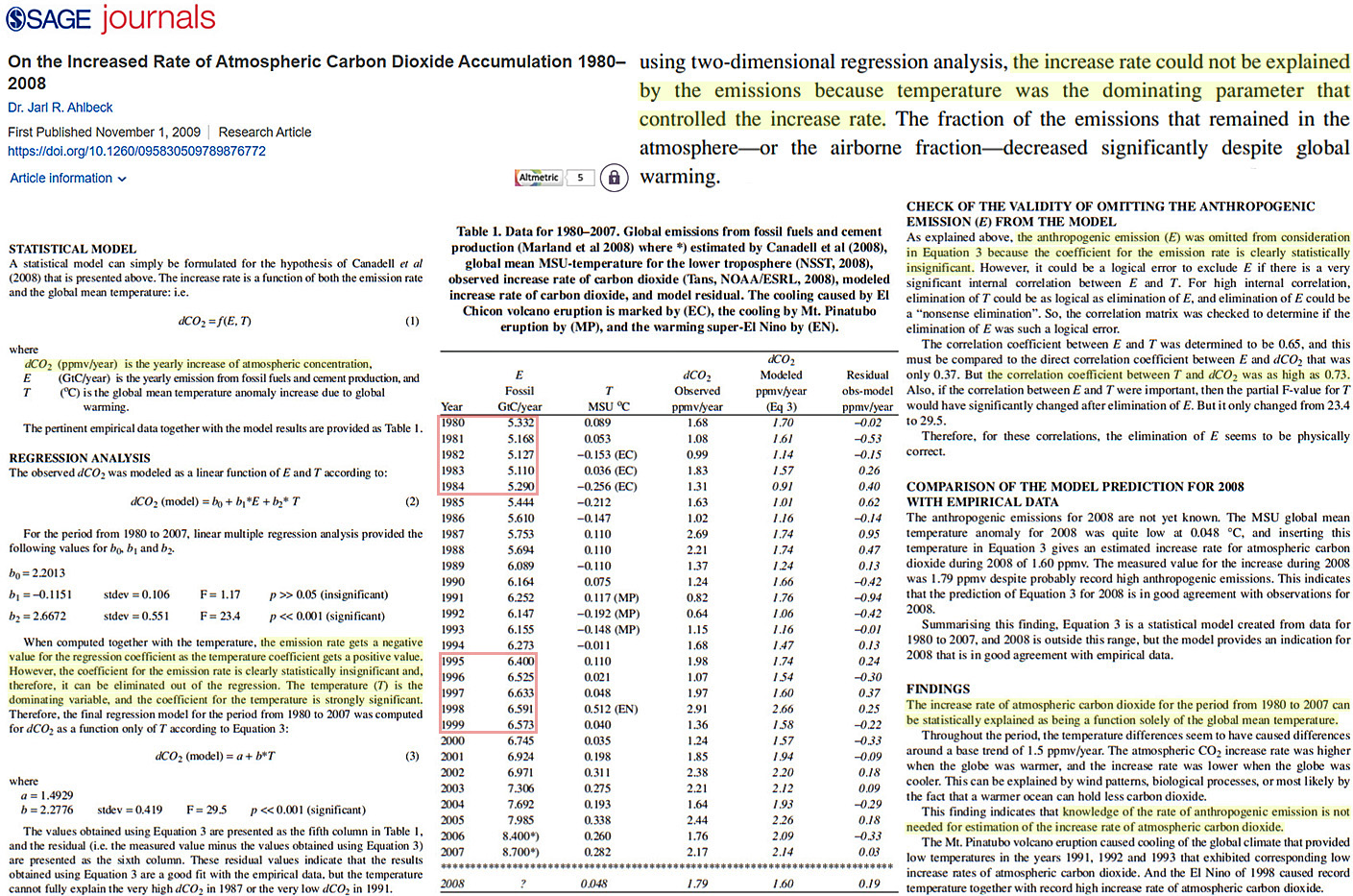
Image Source: Ahlbeck, 2009
And now an updated analysis detailed in the Carbon Brief blog suggests “global CO2 emissions have been flat – if not slightly declining – over the past 10 years.”
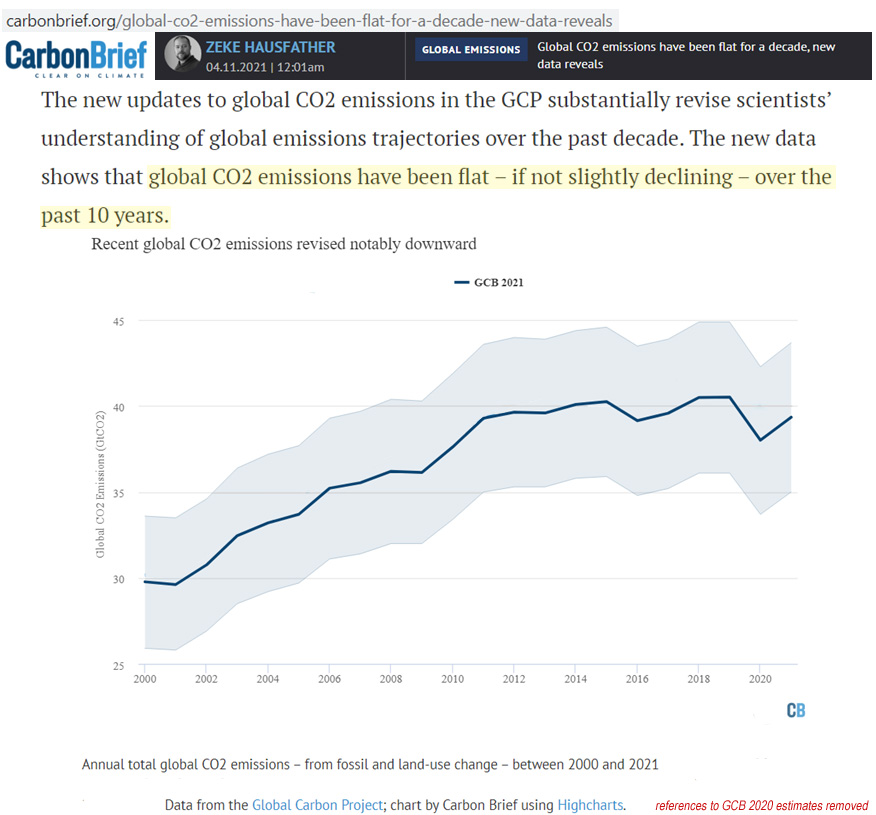
Image Source: Carbon Brief
In sharp contrast with the tiny to non-existent changes in the year-to-year anthropogenic CO2 growth rates, there is an enormous amount of uncertainty and lack of observational knowledge when estimating the massive year-to-year changes in natural CO2 emissions from Earth’s soils.
While human CO2 emissions from fossil fuel combustion and land use change have hovered around 9 to 10 GtC/yr with little variance during the 21st century, soil emissions have been estimated to range anywhere from 78 GtC to 108 GtC/yr in recent decades (Huang et al., 2021).
These natural CO2 emissions are annually about 8 to 10 times greater than emissions from all human activities combined (Carey et al., 2016).
The uncertainty spread of ±15 GtC/yr (78 to 108 GtC/yr) is orders of magnitude larger than the variance in year-to-year growth from anthropogenic sources.
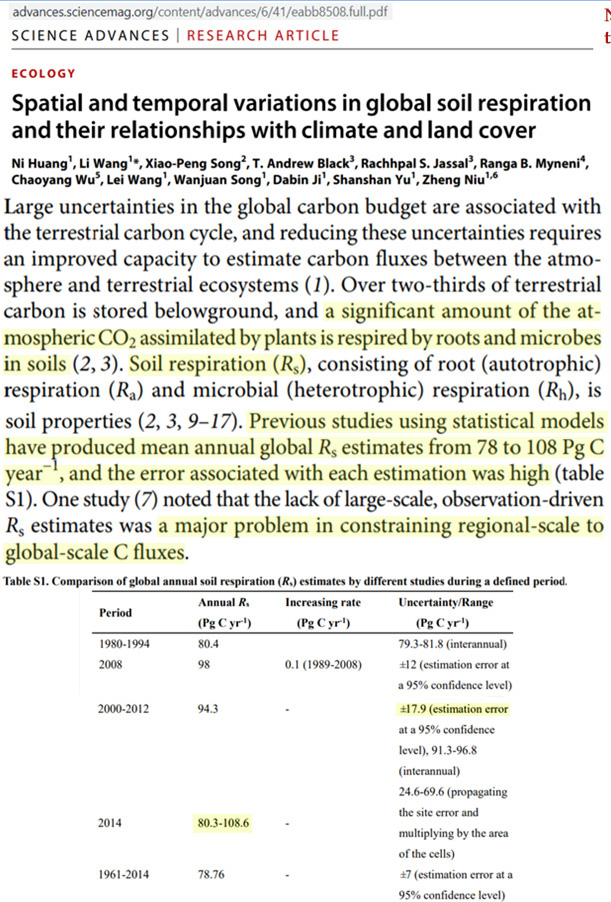
Image Source: Huang et al., 2021
So we have (a) flat to declining trends in annual anthropogenic CO2 emissions in the last decade, (b) many times smaller annual CO2 emissions fluxes from anthropogenic sources relative to nature, and (c) massive uncertainty in the magnitude of change from natural CO2 emissions sources.
So is there a point at which we question the significance of the human contribution to the overall changes in atmospheric CO2? Or does the perception of “settled science” preclude such an examination?





[…] Global Human CO2 Emissions Have Been On A Slightly Declining Trend Since 2011 […]
Human contribution to atmospheric CO2 is meaningless whether it increases or decreases, because atmospheric CO2 does not drive climatic changes.
And yet CO2 in the atmosphere has continued to increase – completely unaffected. Wonder why?
https://scc.klimarealistene.com/2021/10/new-papers-on-control-of-atmospheric-co2/
[…] From the NoTricksZone […]
[…] From the NoTricksZone […]
[…] From the NoTricksZone […]
Fact 1: Remove the Earth’s atmosphere or even just the GreenHouse Gases and the Earth becomes much like the Moon, no water vapor or clouds, no ice or snow, no oceans, no vegetation, no 30% albedo becoming a barren rock ball, hot^3 (400 K) on the lit side, cold^3 (100 K) on the dark. At our distance from the Sun space is hot (394 K) not cold (5 K).
That’s NOT what the Radiative GreenHouse Effect theory says.
EVIDENCE:
RGHE theory “288 K w – 255 K w/o = a 33 C colder ice ball Earth” 255 K assumes w/o keeps 30% albedo, an assumption akin to criminal fraud.
Nikolov “Airless Celestial Bodies”
Kramm “Moon as analog for Earth”
UCLA Diviner lunar mission data
Int’l Space Station HVAC design for lit side of 250 F. (ISS web site)
Astronaut MMU w/ AC and cool water tubing underwear. (Space Discovery Center)
Fact 2: The GHGs require “extra” energy upwelling from a surface radiating as a black body.
EVIDENCE:
Trenberth atmospheric heat balance model (TFK_bams09.pdf (ucar.edu)) and dozens of clones.
Fact 3: Because of the significant non-radiative heat transfer processes of the contiguous participating atmospheric molecules the surface cannot upwell “extra” energy as a black body.
EVIDENCE:
As demonstrated by experiment, the gold standard of classical science.
For the experimental write up see:
https://principia-scientific.org/debunking-the-greenhouse-gas-theory-with-a-boiling-water-pot/
CONCLUSION:
No RGHE, no GHG warming, no CAGW or mankind/CO2 driven climate change.
Version 1.0 121021
[…] From the NoTricksZone […]
[…] From the NoTricksZone […]
[…] Global Human CO2 Emissions Have Been On A Slightly Declining Trend Since 2011 […]